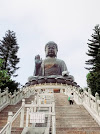What if Hong Kong falls? As in lost forever. Or it becomes another mainland city like Shenzhen or Shanghai.
It’s outside of the realm of possibility for many, but as the worst protests since the 1997 British handover rage on, it is still a question on people’s minds, particularly those in travel. The unspoken worry as protests escalate in Hong Kong is that Beijing will lose patience, clamp down hard once-and-for-all, and the one-country, two-systems bill is no more.
Even as two days of violent protests at Hong Kong’s airport calmed on Wednesday and flights resumed, it was not hard to think of hospitality and tourism companies re-thinking new investments in Hong Kong, or relocating some operations altogether to other Asian cities.
The Global Wellness Summit said Thursday it was moving its 2019 gathering from Hong Kong to Singapore.
The event will now take place at the Grand Hyatt Singapore. The dates remain the same, Oct. 15-17. Organizers expect 600 delegates.
Mass protests have besieged Hong Kong all summer. Protestors invaded the airport terminal earlier this week, closing the airport for two days.
It’s a worst-case scenario, and the common view is it won’t come to fruition. For one, China’s understanding of its own power and influence has changed since, say, the crackdown at Tiananmen Square 30 years ago: “It is more powerful, more confident, and has an understanding of the role that prosperity plays in its stability — and of the role that Hong Kong plays in its prosperity,” a recent Economist story puts forth.
But in the short-term, there is no denying that things are incredibly tough — and tense — particularly in the tourism industry. According to the Hong Kong Tourism Board, early figures show a double-digit decline in arrivals during the second half of July.
The Travel Industry Council of Hong Kong (TIC), a member organization for travel agents, says that the number of inbound bookings from various overseas markets for July and August has dropped 50 percent compared with this time last year. This drop in arrivals is both from mainland tourists and those from overseas markets, and of course has a ripple effect across all of Hong Kong’s economy, from retail and restaurants to taxi drivers. Outbound bookings are also down 15 percent, simply because “people are just not in the mood for traveling,” said Alice Chan, executive director of the TIC.
Indeed tourism professionals are in a kind of nervous wait-and-see mode, unable to make long-term pronouncements of how the industry will fare next week or month, let alone next year. Many travel agents have been asked to take leave (some unpaid) due to scant work, Chan said, while some tour escorts and guides — who rely on commission rather than salary — are simply out of work. When asked if it is actively promoting tourism to Hong Kong in new or ongoing campaigns, the Hong Kong Tourism Board said it is closely reviewing developments and will “flexibly adjust its strategies and plans as required to respond to contingencies and changes in the market environment.”
Sources have expressed some sense that the reality on the ground for Hong Kong locals (relatively normal daily life other than contained protest areas) is different than what would-be tourists are seeing in portrayed media (violent protests all over the city). However, Chan said she felt that sense had shifted somewhat in recent weeks with the incidents at the airport.
The negative short-term effect that these demonstrations will have on the tourism industry is not in question, but the longer term feels like anyone’s guess, says Chan.
WHAT IF?
But what if Hong Kong loses its autonomy? How will it look as a destination? What domino effects will that have on global travel and tourism?
Asked to imagine this scenario, Laura Beaton, travel and tourism analyst at GlobalData, ventured a guess: “Hong Kong will likely become less-desirable to international tourists if it loses its relative liberalism compared to mainland China. Sixty-eight percent of visitors in 2018 were from China so international tourism would be a small fraction of what it is now. The U.S. is the third largest market so there is a big chance of losing visitors because of the trade war with China. However, Hong Kong still has many popular tourist attractions so everything would depend on visa restrictions.”
Dezan Shira’s Förster pictures a shift from Hong Kong as a global hub towards other airports in the region should the SAR fall.
“Hong Kong airport is a huge transit hub connecting Asia and Oceania with the world, being the transit destination between London and Sydney, Berlin and Hanoi, or Bejing and Bali, for example.
“Singapore with its five-star airport is a big competitor. If Hong Kong should eventually fall, I would see a shift towards other airports in the region. Guangzhou Baiyun’s brand new terminal two will serve more passengers; Beijing’s new Daxing International Airport is expected to open on September 30, most likely becoming one of the busiest airports and the largest single-terminal airport in the world. The existing Beijing Capital International is already the second busiest worldwide,” he said.
But even if it falls, Pinkerton’s Strudwick believes Hong Kong will always hold importance for tourism “by deed of its history and location.”
“It’s the sporadic violent protests and flight uncertainty that is keeping tourists away right now.”


























